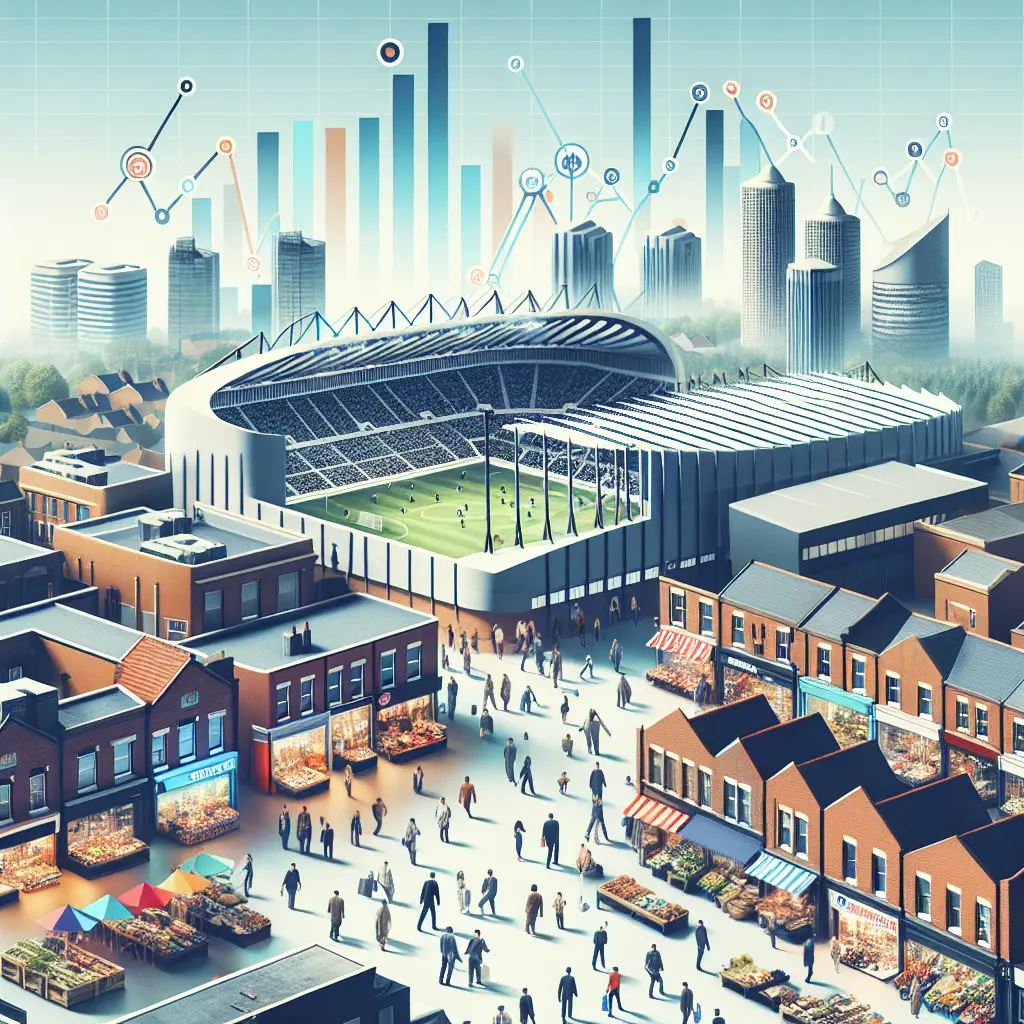
Newcastle United has long been a cornerstone of not just the Premier League but also of the vibrant city of Newcastle. The club's influence extends far beyond the football pitch, impacting various aspects of the local and regional economy. From job creation to tourism, and from stadium developments to community engagement, the economic footprint of Newcastle United is significant. This blog post explores the multifaceted economic impact of Newcastle United on the local economy, integrating recent news and updates related to the club.
Newcastle United’s Contribution to the Local Economy
At the heart of football economics, Newcastle United plays a pivotal role in the sports industry's contribution to the local economy. The club generates substantial revenue, which in turn stimulates economic activity across the region. According to recent reports, Newcastle United's revenue streams from matchday sales, broadcasting rights, and commercial deals continue to bolster the local economy (Source: Deloitte Football Money League).
Job Creation in Newcastle
One of the most direct impacts of Newcastle United on the local economy is job creation. The club not only employs a significant number of staff but also supports employment through its supply chain. This includes jobs in catering, security, maintenance, and more within the stadium environment. Moreover, as noted by Howe, the club’s commitment to the city is unwavering, ensuring continued investment in local employment (Source: BBC Sport).
Tourism and Football
Tourism flourishes in cities with Premier League clubs, and Newcastle is no exception. Match days are significant events that draw fans from across the country and even internationally. This influx of visitors benefits hotels, restaurants, and other local businesses significantly. Recent events, despite their challenges, have shown that football can significantly increase foot traffic and spending in the city (Source: VisitBritain).
Investment in Newcastle and Sports-Related Business Growth
The presence of Newcastle United encourages broader investment in the city. This includes improvements in infrastructure and increased interest from businesses looking to capitalize on the club's popularity. The sports-related business growth extends to retail businesses selling merchandise and local sports bars where fans gather to watch games (Source: Newcastle City Council Reports).
Fan Spending Impact and Stadium Development Effects
The impact of fan spending cannot be underestimated. Every home game translates into significant revenue for local businesses. Additionally, stadium developments have catalytic effects on regional economic development. Plans for expanding or upgrading facilities often lead to increased spending on construction and related services, providing a further boost to the local economy (Source: StadiumDB).
Sports Merchandising Revenue
Merchandise sales also play a crucial role in the economic equation. Newcastle United's sports merchandising revenue helps support local retail jobs and contributes to the overall economic health of the region. The popularity of football kits, scarves, and other memorabilia ensures that a portion of fan expenditure stays within the local economy (Source: Sports Business Journal).
Newcastle United Community Engagement
Beyond the economic figures, Newcastle United’s community engagement initiatives contribute significantly to social cohesion and public welfare. Programs aimed at supporting local youth, promoting sports among underprivileged communities, and other social outreach programs are integral to the club's identity (Source: Newcastle United Foundation).
Recent News Impacting Economic and Community Activities
Recent developments have kept Newcastle United in the headlines. Manager Eddie Howe’s commitment amidst links to the England job highlights stability at the club, which is crucial for sustained economic impact (Source: Sky Sports). Meanwhile, signings like England defender Stokes and approaching deals like that with Guehi indicate strategic investments aimed at enhancing the team's competitive edge, thereby boosting game-day revenues and fan engagement (Source: The Guardian).
The unfortunate passing of former midfielder Cassidy reminds us of the deep historical ties and emotional engagement that fuel fan loyalty and spending (Source: BBC News). Such figures are not just players but are part of the larger community fabric that supports economic activities related to football.
Conclusion
In conclusion, Newcastle United's influence on the local economy is profound and multifaceted. From direct impacts like job creation and fan spending to more indirect influences such as regional economic development and community engagement, the club remains a key player in the economic landscape of Newcastle.
As we have seen, the club not only strives for success on the field but also commits to fostering a thriving local economy and vibrant community. The ongoing investments and engagements are testament to a promising future, both for the club and for the city it represents.
Thank you for joining me on this exploration of how a football club transcends sports and becomes a pillar of economic and social well-being.
Harry Foster